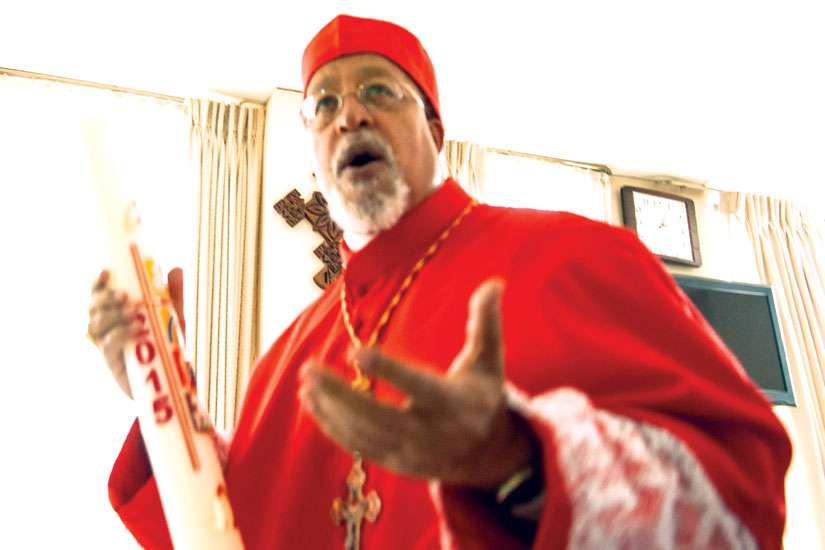“The Catholic Church is a universal institution, both human and divine,” Cardinal Berhaneyesus Souraphiel, metropolitan archbishop of Addis Ababa, told The Catholic Register. “It is not a European Church, it is not a Canadian Church or a U.S. Church. It’s different. The issues families are facing in some parts of the world would be different than in other parts of the world.”
Where Europe and North America face problems such as how to respond pastorally to state-sanctioned same-sex unions or divorced and remarried Catholics, families in other parts of the world face issues that arise from economic globalization or rapid urbanization.
“For us in Ethiopia, the big issue will be poverty,” said Berhaneyesus. “If you are not sure if you can continue providing sustenance for the family, food and so on — not only rent, but food — if you don’t have this (basic economic stability) you might find the husband working somewhere else, the wife working somewhere else. The family separates. And then the children suffer.”
With more and more Ethiopian women finding work abroad in Arab states as domestic workers and Ethiopian men landing jobs in mines or on large-scale industrial farms, Ethiopia’s rapidly expanding economy is making it hard to keep a family together, said Berhanyesus.
“We feel here the issue is, how can the Church contribute to the alleviation of poverty?” he said.
Bishops’ conferences should play a role in helping individual bishops adapt the teaching of the Synod to their country or region, according to Berhaneyesus.
“The episcopal conferences have been sent, not to replace or to change the teaching of Our Lord Jesus Christ or the teaching of the Church, but to see that the teaching of the Gospel is inculturated, is put into the life situation of the particular country or particular society,” Berhaneyesus said. “For the moral issues that are coming up around the family, probably the next Synod will say, ‘Let us see them in context. Let us allow the conferences to come with suggestions.’ It could be done that way.”
Berhaneyesus emphasized the Second Vatican Council’s teaching on subsidiarity — the idea that responsibility for solving a problem lies not with the highest possible authority but with the people who have the problem and must live with the solutions.
“What the family can decide, let not the society or the municipality or the local government interfere. What you can do as a family — how many children should I have and so on — if you can decide on your level, let’s respect that,” he said.
“They give that also to the bishop, the local bishop.”
There’s sometimes a tension between individual bishops and their conferences of bishops, which have their own staff, programs and priorities, said Berhaneyesus.
“This tension is there. Is that a healthy tension or a negative tension? History will tell,” he said.
Berhaneyesus concluded a three-day jubilee celebration of the 50th anniversary of the Ethiopian Conference of Catholic Bishops on July 26, hosting bishops from around Africa. There are fewer than one million Catholics in Ethiopia, less than one per cent of a country that is 45 per cent Orthodox and 35 per cent Muslim, with a mix of traditional beliefs making up the balance.
The cardinal predicted Africans will be heard loud and clear at the Synod.
“The African message for the Synod is Family is Life. So let us give importance to life. Let us stand for life,” he said. “You know life and values are tied. Things will change. Many things are changing. But there must also be values which remain. Love between husband and wife, respect between children and parents, respect for elders should remain, should endure. What should be changed or should endure? This is, of course, the big question in our lives.”


